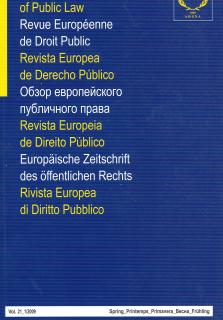
Administration without Frontiers?
European Migration Law
Germany
Dr. (Berlin), habil. (Berlin), LL.M. (London),
Senior Associate of the Walter-Hallstein-Institute for European Constitutional Law
at the Faculty of Law at the Humboldt-University, Berlin
During the past 30 years the Federal Republic of Germany has incrementally developed its original model for the regulation of international migration. Its continued transformation is being driven by domestic political decisions and the EU harmonisation measures adopted in recent years. Several decades of experience with the regulation of international migration characterise German migration law as one important foundation and source of inspiration for common standards at European level. However, European harmonisation does not entail the end of national specificities. Since EU legislation requires national implementing measures, the highly differentiated regulatory framework of German administrative and migration law continues to characterise the particularity of the German approach towards the regulation of international migration. Only this awareness for the continued relevance of national legislation within the harmonised European legislative framework aptly describes the present and future role of German migration law.





















